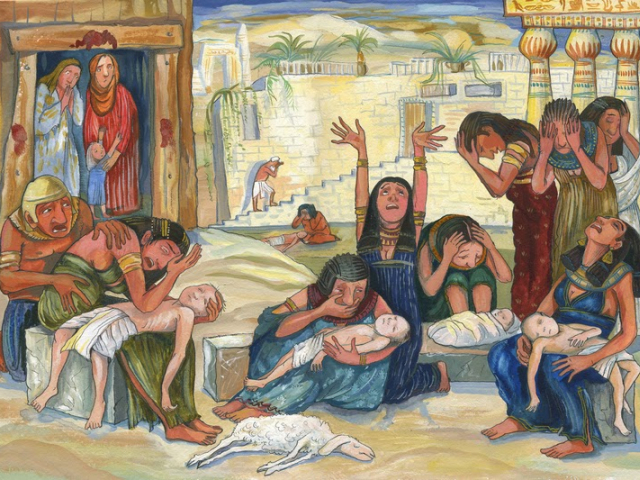
Few people know that Easter is an event that occurred in Egypt in the 13th century before the birth of Christ, and it was described in the Old Testament. At that time, the Jews were enslaved by the Egyptians, working day and night in the quarries, building pyramids and even being subjected to genocide. After numerous plagues inflicted upon Egypt, an angel passed through all the cities and killed all the Egyptian first-borns, as the Egyptian monarch did earlier with the Jewish babies. Seeing this, Pharaoh in horror immediately freed all Israelis. Day of the deliverance of the Jewish people from Egyptian slavery became henceforth a holiday of Easter.
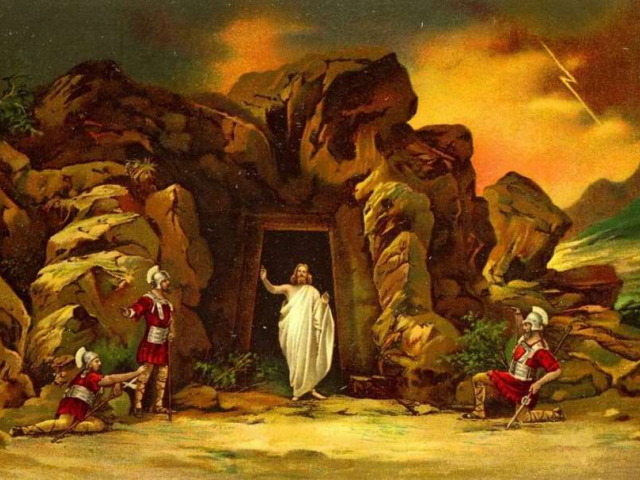
According to New Testament, Easter became the prototype of the liberation of all mankind from the death, therefore the birth of Jesus Christ, one of the sons of Israel, was associated with the birth of the Messiah who at the cost of his life will save all the peoples of the Earth from suffering. A belief that the human life after death does not end but leads to eternal life and reunification with God appeared.
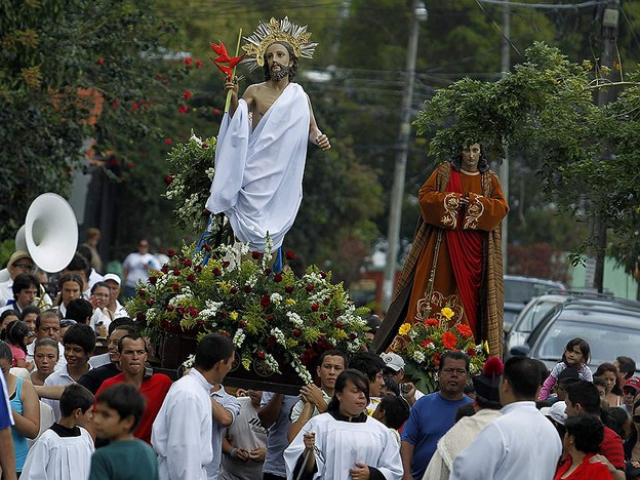
Brazilia
In Brazil, the majority of the population are Catholics, so the Holy Week, during which colorful rituals are held, is celebrated throughout the country. The most striking events of this time are the processions with torches from Goias to Velha, the Passion of Christ shows in New Jerusalem and in Recife. On the night before the Sunday march, the streets, through which the processions pass, are covered with colorful carpets created with the help of wood shavings, flour, coffee, and flowers.
On this day the Brazilians drink hot chocolate and give each other figurines of rabbits, colorful eggs with the image of Christ, the Mother of God or angels, as well as boxes of chocolates.

The USA
On Easter, Americans buy potted lilies in flower shops and decorate churches and their homes with them. Easter baskets are decorated with fresh flowers, ribbons, and bows. Traditional dishes are cakes, cottage cheese, eggs, but each family prepares other treats, such as dishes from potatoes, all sorts of fruit salads and ham with pineapple. In any state, having visited the Easter Mass ("At Dawn") in the morning, by the evening, US residents gather at a large table with the family.

Portugal
On the streets of pre-Easter Portugal, everywhere there are altars and statues decorated with flowers and lilac fabric. Catholics consider lilac color as a color of repentance which is especially appropriate for the Easter week.
On Palm Sunday everyone has the palm leaves and flowers which are traded here on every corner. Easter processions begin from different parts of the city representing famous biblical events. A popular food is bun-baskets with uncleaned eggs inside.
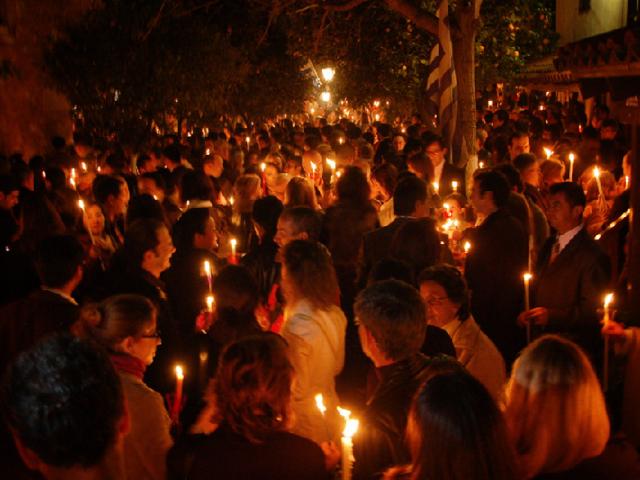
Greece
In Greece, the main event of Easter is the delivery of Holy Fire by a special flight from the Church of the Holy Sepulcher in Jerusalem. During the Christian procession with singing and lit candles, the symbolic burning of Judas, or simply a scarecrow of a particularly unpopular politician, is a mandatory ritual. Exactly at midnight, after the solemn reading of the Gospel, a grandiose firework begins, a "firefight" by firecrackers or even the beating of hundreds of clay pots to commemorate the victory of good over evil at Easter. Every passerby considers it his duty to take a shard from a broken pot for luck.
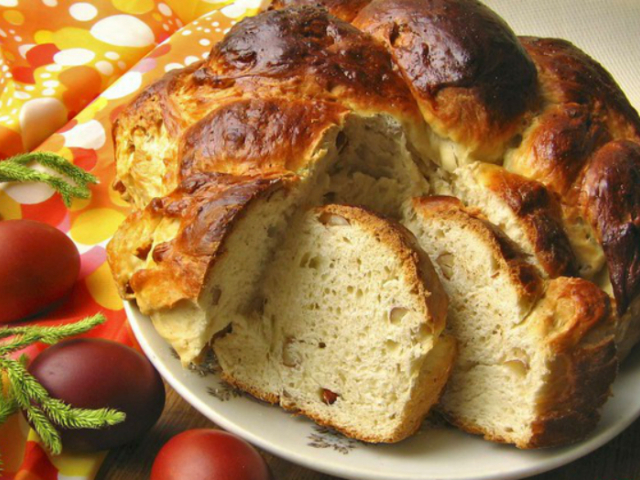
Romania
In Romania for Easter, it is customary to bake the Babele Easter Baba, a sweet dish of pasta, or a flour product of the "opposite sex" - a grandfather who, unlike a woman, must be sour or salty. Both Romanian dishes are plaited in a pigtail decorated with a cross and traditionally consecrated in the church. In addition to traditional products, salt, sugar, lard, money, and in some regions also garlic are consecrated.
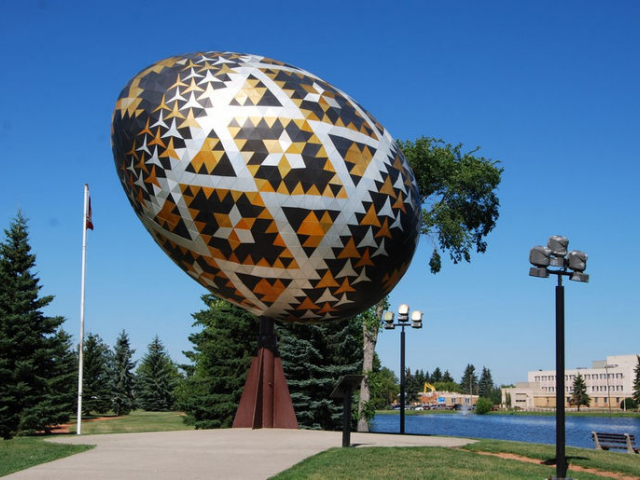
Canada
On Easter night during the religious procession, the church officials consecrate not only people but also their houses, as well as water, air, and the Earth itself.
In Vegreville on this day, most locals come to the monument of "Ukrainian pysanka", a hen's egg 8 meters long and 5 meters wide painted with wax and natural dyes.
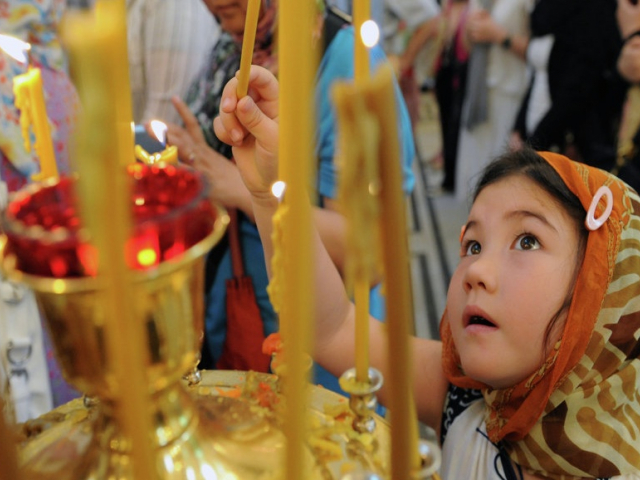
China
In China, for the parishioners of the Church of the Assumption of the Blessed Virgin Mary in Beijing, located on the territory of the Russian consulate, a tea party with consecrated pastries and a solemn divine service are held. It is noteworthy that when entering the temple, Chinese citizens need to show their passports since the list of participants of the Easter service is drawn up in advance.
In addition, the Easter Sunday in China is remembered by theatrical performances and concerts. Chinese priests devote a lot of attention to lessons with children in Sunday school telling them about the life of Jesus Christ and giving knowledge about the foundations of Orthodoxy.

Georgia
In some villages of Georgia on Easter, it is customary to play the Lelo, an old-style game during which you should move a 16-kilogram leather ball into the opponent's gate. The ball is sewed long before the event itself. It is filled with sand and a little wine, then it is brought to the local church and consecrated before the start of the game. After the match, the winning team places the ball on the grave of a recently deceased respected fellow villager, after which the former rivals gather together at the table and celebrate Easter.

Serbia
In Serbia, the celebration of Easter takes place right in the churchyards where gypsy orchestras play and people dance "colo", traditional Servian dance. Folk festivities, or varos, include real "egg fights" in which several hundred people take part.
On the festive table on this day, in addition to traditional eggs and Easter cake, there will necessarily be served bread, wine and boiled aspergillum and most importantly - a lamb, baked on a skewer with olive oil.
 বাংলা
বাংলা 
 Русский
Русский English
English Bahasa Indonesia
Bahasa Indonesia Bahasa Malay
Bahasa Malay ไทย
ไทย Español
Español Deutsch
Deutsch Български
Български Français
Français Tiếng Việt
Tiếng Việt 中文
中文 हिन्दी
हिन्दी Čeština
Čeština Українська
Українська Română
Română
